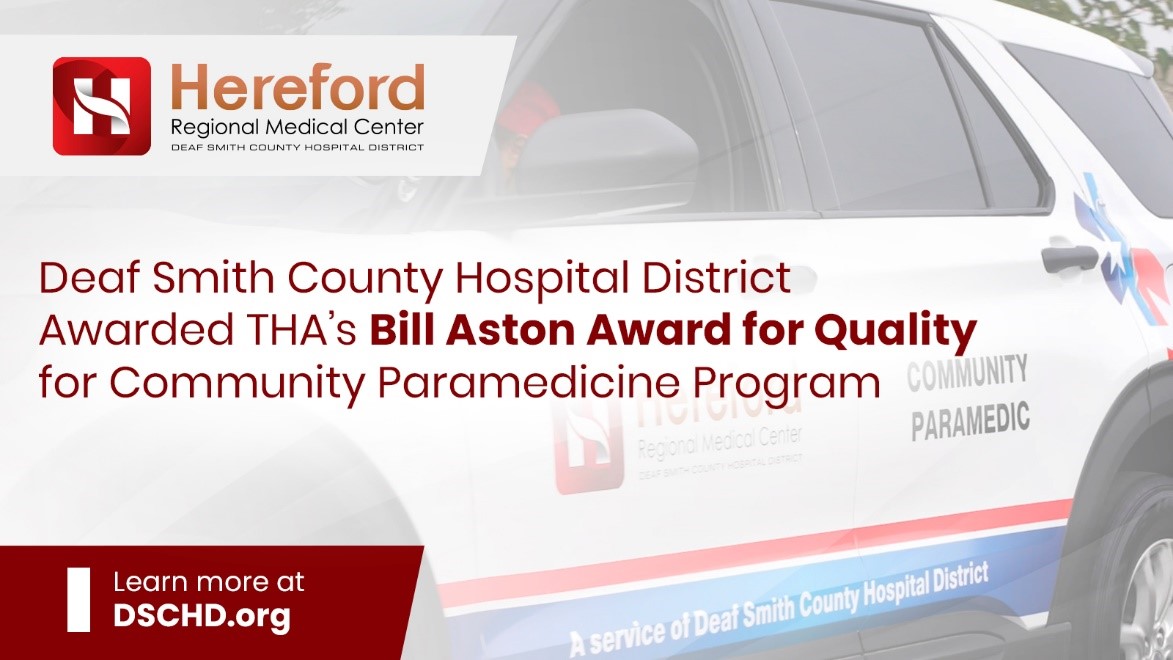February 20, 2024
Award-Winning Community Paramedicine Program Redefines Success for Rural Health Care
At Deaf Smith County Hospital District, caring for patients doesn’t end when they leave the hospital.
“We don’t want to see our patients readmitted,” said Candice Smith, RN, MSN, Deaf Smith County Hospital District CEO. “The community paramedicine program allows us to provide the resources, education, and access to care our patients need to ensure a successful recovery at home.”
The community paramedicine program recently received the Bill Aston Award for Quality from the Texas Hospital Association, in recognition of the program’s innovation and outcomes, including a steep reduction in preventable hospital readmissions. The program began in March of 2022, and the hospital’s readmission rate fell from 35 percent to just 5 percent in a year: the lowest in the Texas Panhandle.

Candice Smith, RN, MSN
CEO

Hereford EMS team

Esmeralda Florez during a home visit

Esmeralda Florez, LMSW
Director of Social Services
“When we started the program, our readmission rate was not where we wanted it to be,” remarked Esmeralda Florez, LMSW, Deaf Smith County Hospital District director of social services. “But now, follow-up visits have increased, and our readmission rate has decreased tremendously.”
A low readmission rate isn’t just a statistic for the DSCHD care team; it’s confirmation that the community paramedicine program is actively improving care for the Hereford community.
“This is a small, rural community, and ultimately, we’re here to help our neighbors,” said Terry Hazlett, Deaf Smith County Hospital District EMS director. “Thanks to this program, I know we’re doing everything we can to provide better health care for our community.”
The DSCHD community paramedicine program launched in March of 2022 and brings together paramedics, nurses, social workers, physicians, and respiratory therapists to work with patients after they leave the hospital. The team meets patients in their homes to address a wide range of needs, including safety or living condition issues that could negatively impact care and outcomes. This ensures patients keep appointments for follow-up visits and obtain medications, equipment, and any social services they may need to continue recovering at home and avoid re-hospitalization.
The Texas Hospital Association Bill Aston Award for Quality honors hospitals’ measurable success in improving quality and patient outcomes through the sustained implementation of a national and/or state evidence-based patient care initiative.

More about HRMC
Hospital Investments Yield Strong Patient Satisfaction Scores
Data reveals high marks from patients treated at Hereford Regional
Bringing Kidney Care Closer to Home: How Telemedicine is Changing the Future of Dialysis at HRMC
For many patients living with kidney disease, getting the care
Inpatient Dialysis and Nephrology Services Now Available at Hereford Regional Medical Center
Hereford Regional Medical Center is expanding its specialty services, making







